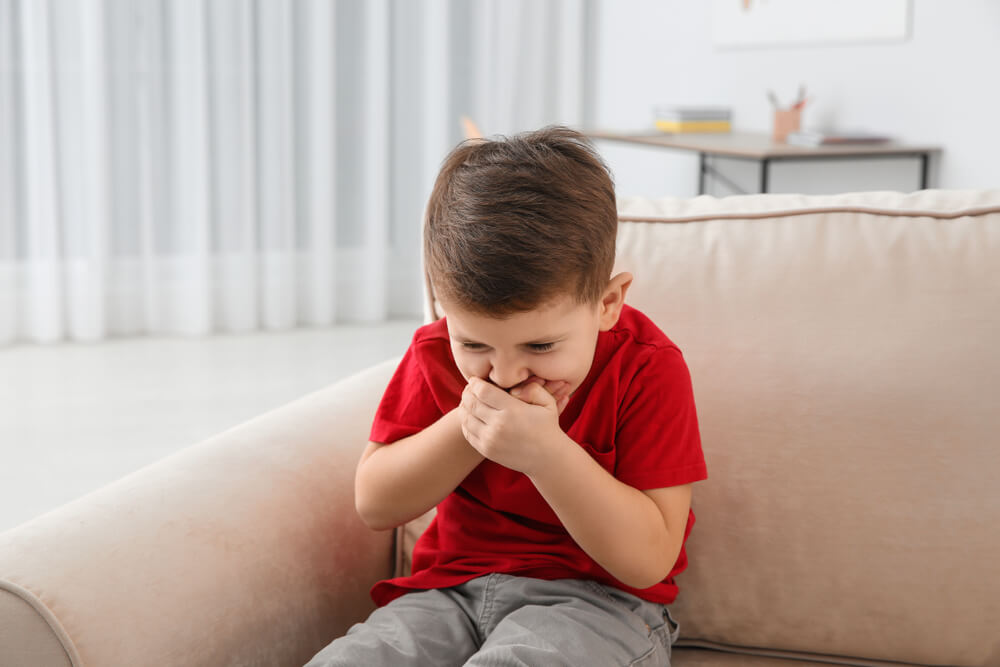Heart disease is a serious problem in this country. In fact, it is the number one cause of death. This is tragic enough in adults but it’s even more tragic when a child suffers from heart disease. Children may be born with a heart condition, develop it from diabetes, or get it from medication. If you know the signs of a problem and catch it early on, you may have a better chance of resolving the issue. Here are some early signs of heart disease in children.
Pale Skin/Blue Coloring
You may not be able to see your child’s heart for yourself but you may be able to recognize a heart problem through your child’s appearance. If your child has a heart problem, you may notice pale skin or blue coloring around the lips. This discoloration is known as cyanosis.
The heart is what pumps blood through our veins. When the heart isn’t working properly, blood circulation could be poor. If the blood isn’t able to circulate through the body regularly, the skin won’t look as vibrant. It may even feel somewhat cold to the touch. It’s similar to when you cut off circulation to a finger by tying a string around it too tight.
Keep in mind that children could have poor circulation for a number of different reasons. That’s why it is important to get a proper diagnosis by going to the doctor, especially if the issue lasts longer than a couple of days.
Fatigue

Most parents are relieved when their child is finally tired at the end of a long day. However, no parent wants their child to be chronically fatigued. You will notice if your child is fatigued by how much they sleep throughout the day and how much energy they have while they are awake. It’s normal for all of us to feel exhaustion at certain times but your child shouldn’t sleep all day for days in a row. Oftentimes, the fatigue they are experiencing is a direct result of poor circulation. While you can try and look for solutions to the symptom, you should get to the bottom of the fatigue to clear up the problem once and for all. This means focusing on heart health and getting treatment for any sort of heart condition your child may have.
Arrested Development
When the heart pumps, it sends nutrients throughout the body. These nutrients are distributed to help your child grow. If the heart isn’t pumping properly, these nutrients may not be sent at the optimal rate. This means your child may not grow like it should. It’s crucial for your child to have a healthy heart during critical developmental periods to get the nutrients they need. Pay attention to your child’s size compared to other children. While some children may be naturally small, other children may have a heart problem. The child may also have cognitive developmental issues that could cause them to struggle in school or other social issues. If you fix the heart problem, you’ll be able to improve the rest of your child’s development.
Getting Winded Easily
Is your child the one who can’t seem to catch up with the other kids on the playground? Are they stopping and breathing heavily after just a little bit of running around? If this is the case, their heart might not be able to keep up with the activity level. While you don’t want to push your child too hard, you should still let them play so they can strengthen their heart. However, you should be cautious.
Fainting
There may be times when your child gets so light-headed that they faint. This can be very dangerous, especially if they hit their head when they pass out. You want to get to the bottom of the problem and prevent it from happening again. Fainting is one of the heart disease symptoms. If your child has a heart problem, the brain may not be getting enough oxygen. It can be difficult to know when your child will faint because many of these signs are ones you can’t see. Some symptoms that your child is about to faint include:
- Tunnel vision
- Light-headedness
- Dizziness
- Nausea
- Heat or chills
Talk to your child about these signs so that they know to come to you when they start feeling the symptoms come on. Advise them to lie down and shut their eyes if possible. You may also encourage them to take deep breaths to hopefully improve circulation.

Cardiac Events
If your child has a heart problem, they may have what is known as a cardiac event. A cardiac event is any moment when the heart acts irregularly. It could be as small as a skip of a heartbeat to something as serious as a heart attack. Signs of a cardiac event include:
- Pressure in the chest
- Cold sweats
- Light-headedness
- Indigestion
- Chronic cough
If you notice these symptoms in your child, you should take them to the emergency room right away. Once they’re stable, you and your child’s doctor can come up with a plan to help prevent cardiac events in the future. Again, you may not notice these symptoms in your child right away, so make sure they know to come to you if they don’t feel right.
In some cases, a cardiac event may be mistaken for a seizure. Pay attention to how your child acts when it happens so you can give the best description possible to their doctor.
Listen to the Heart
If you want to get to the bottom of the problem, you may only need to put your ear to their heart. A normal heartbeat is regular and remains consistent. You can compare it to your own heartbeat to check if they sound the same. Is your child’s heartbeat regular, or does it seem off? If you can hear a problem yourself, go to a professional as soon as possible. If you don’t hear a problem but notice some of the symptoms of heart disease, you should go to the doctor.
Your child’s health is of the utmost importance. A heart problem can be scary, but it can be managed if caught quickly. If you think your child may have a heart problem, you should take them to the doctor as soon as possible to get them checked out. The doctor may be able to recommend medication or surgery to help resolve the issue. You should also focus on a heart-healthy diet involving a lot of low-calorie foods filled with nutrients. Also, you should consider getting your child involved in sports to ensure they get plenty of physical activity. These good habits will hopefully follow them into their adult years.
If you have any additional questions about your child’s heart health, reach out to us at Worldwide Pediatrics Group today. We have medically trained professionals who can help your child live a healthy and happy life. Schedule an appointment today.



